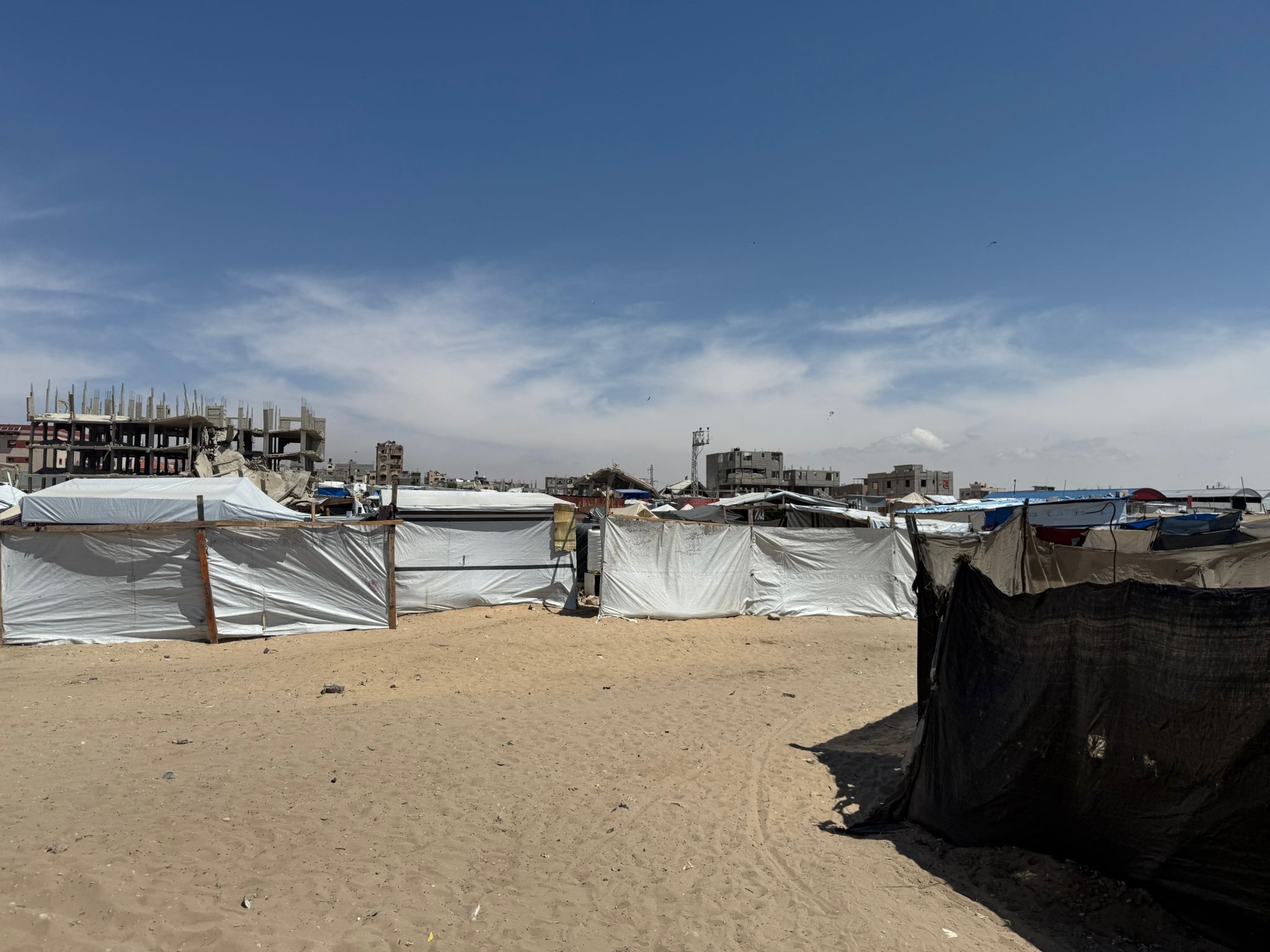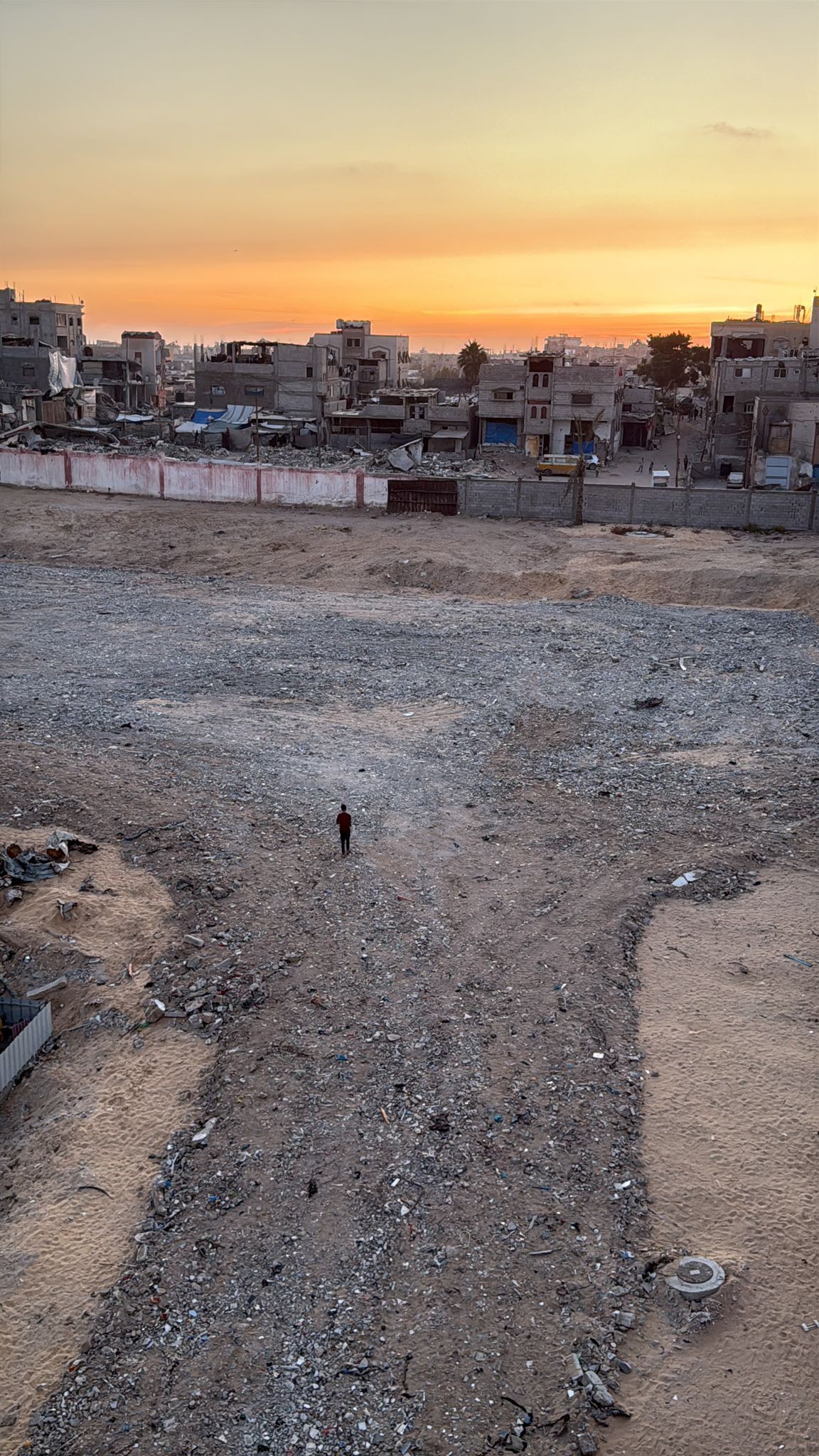UK surgeon treating patients in Gaza warzone says population ‘at its last limit’
Dr Tiziana Roggio, a London-based plastic surgeon reported malnutrition among patients, limited antibiotics, and lack of water.

A UK-based surgeon treating Palestinians in one of the last functioning hospitals in Gaza has said the local population is “at its last limit” amid daily drone strikes.
Dr Tiziana Roggio, an Italian plastic surgeon based at St George’s Hospital in Tooting, south London, first arrived in Gaza on May 12 alongside a team of four other London-based doctors.
Dr Roggio is volunteering for a month at Nasser hospital in Khan Younis, southern Gaza, tending to patients with blast injuries and burns with limited medical supplies.
Over recent days, strikes have pounded areas across Gaza and Israel has issued evacuation orders for Khan Younis.
Dr Roggio said Nasser hospital is just 1.5km (0.9 miles) away from the declared red zone and fears what will happen to patients if the hospital has to be evacuated.
“If this hospital shuts down, loads of patients will die because they won’t have anywhere to go,” Dr Roggio told the PA news agency from the operating theatre in Nasser hospital.
“This is the biggest hospital in Khan Younis and has a large volume of patients, and has ICU facilities, oxygen generators, has got scans and operating rooms that can accommodate big surgical procedures like vascular surgery.
“If this hospital closes, the only hospitals remaining will be the tent hospitals.
“Although these hospitals are functional, they don’t have facilities that can support ICU patients or complex surgical procedures.”
Dr Roggio, who travelled from London to Gaza with a humanitarian charity called International Disaster & Emergency Aid with Long-term Support (Ideals), said the situation in Gaza is much worse than she had anticipated.
“Its been quite shocking. I’ve been told that it’s much worse now, because the population is really on its last limit,” she said.
“We have drones over our heads every day and it gets honestly unbearable sometimes, because it’s really loud.
“It’s really warm at the moment so you kind of want to keep the windows open and you can’t, it gets really stressful.
“I can’t keep track of time, because I don’t even know what day it is.”
Dr Roggio described hearing “massive blast noises” on Tuesday morning after an Israeli drone strike hit the area.
“Yesterday morning I guess that we were bombed early in the morning. We were sleeping at about 5.30am and the whole building shook,” she said.
“We heard this massive blast noise and we all went out and we had jets flying over our heads and dropping bombs in the area that is very near where we are.”

Dr Roggio, who has been working 12-hour shifts at Nasser hospital treating 10 to 12 people every day, described working with severely malnourished patients and having limited antibiotics.
“All the patients we treat are severely malnourished and this is a problem for us plastic surgeons, because all the wounds are not going to heal,” she said.
“If the patient is not on adequate nutrition, the infection rate is really high.”
She also described the challenges of working with limited antibiotics.
“They are essentially antibiotics that we give to our patients in the UK at the induction of surgical procedures,” she said.
“But here these antibiotics are used to treat severe infection, and these are all wounds that are highly contaminated because they are from blast injuries.
“We are treating things that in the UK would be absolutely healed in one week but here it’s taking forever.”
Dr Roggio commended the resilience of local medical staff who have been operating in such severe circumstances for the last 18 months.
“I’m absolutely shocked to see how the local team is coping with this situation that has been going on for a very long time,” she said.

“Consider that they come every day from their accommodation, which means tents, where they had to live for the last few months.
“They have been forced to leave their houses and take their belongings.
“They don’t lose energy. They come here every day. They’re super polite. They even bring us presents and food, which is absolutely shocking, because they have literally nothing. They don’t even have water.”
The war in Gaza began when Hamas-led militants attacked southern Israel on October 7 2023, killing some 1,200 people, mostly civilians, and abducting 251.
Hamas is still holding 58 hostages, a third of whom are believed to still be alive.
In response, Israel launched an offensive that has killed more than 53,000 Palestinians, mostly women and children, according to Gaza’s health ministry, which does not distinguish between fighters and civilians.
The Ideals JustGiving donations page can be found at: justgiving.com/ideals





